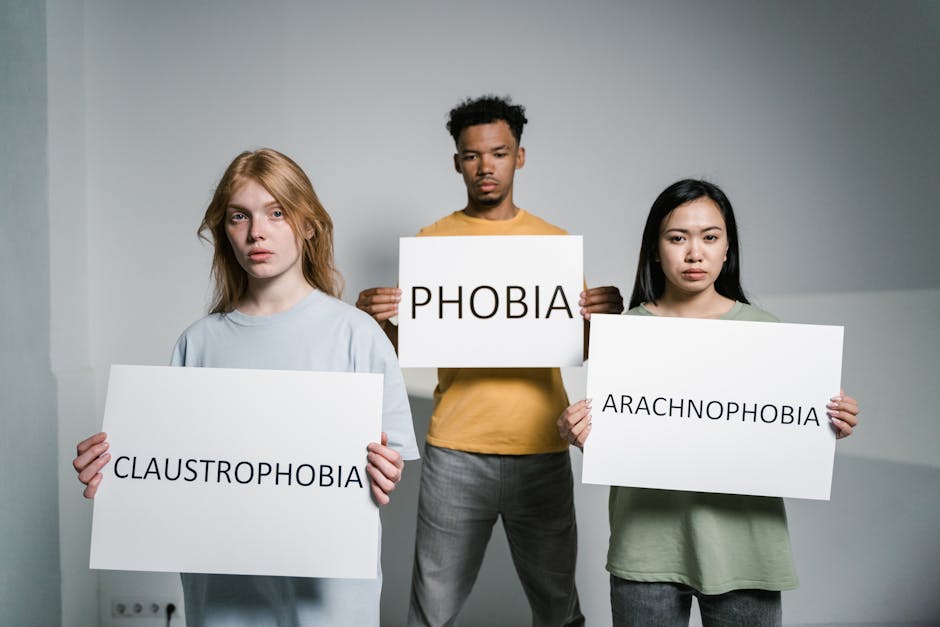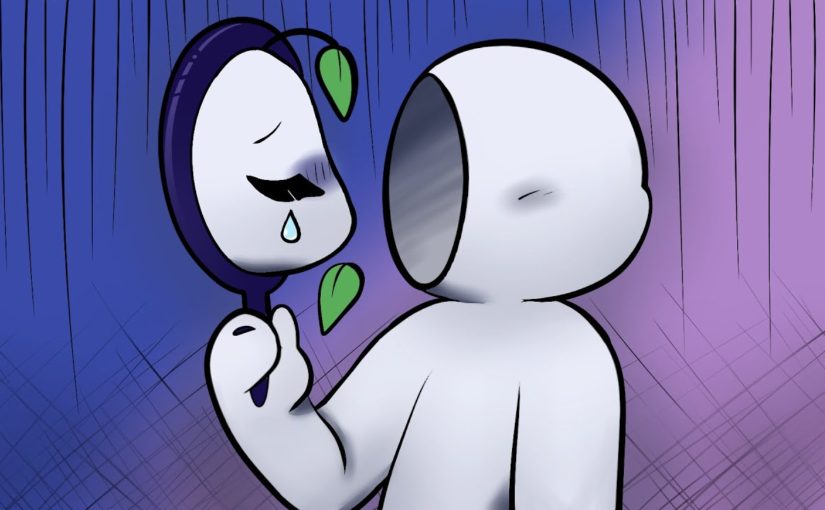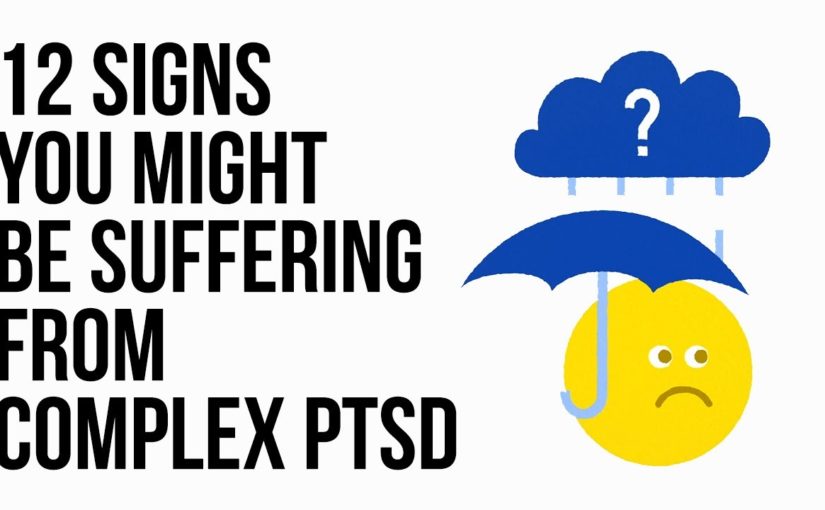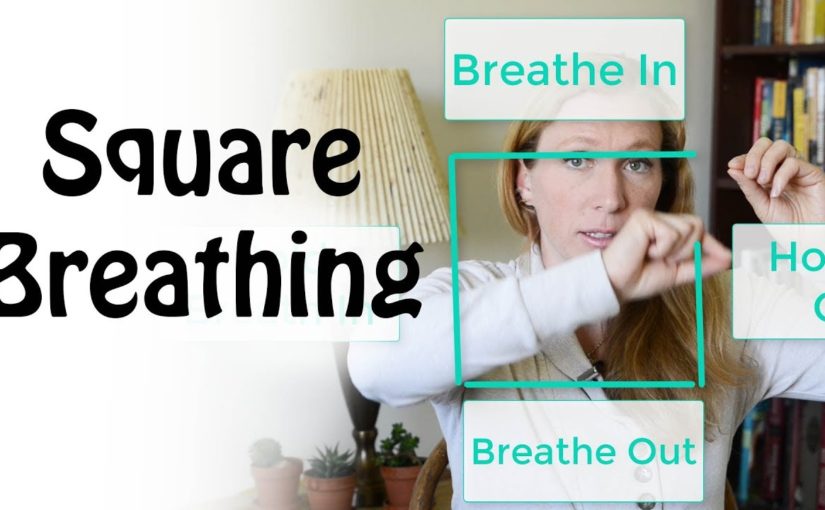– [Amanda] Hey, Psych2Goers, do you feel distant from
your emotions, thoughts, surroundings, and memories? This is part of something
called dissociation. Dissociation is a defense mechanism where you unconsciously push away conflicting or threatening emotions and compartmentalize feelings so that you don’t have to deal with them. Within the umbrella of
dissociative symptoms, there are two that help
categorize the experience, detachment dissociation and compartmentalization dissociation. Detachment dissociation
refers to feeling like you have been taken out of your body. Compartmentalization
dissociation refers to when your mind pushes aside distressing
moments or experiences, this usually results in memory loss. With that said, here are five signs you may be experiencing dissociation. Number one is memory loss. Memory loss is a common
symptom of dissociation. You may find yourself at work or school, but unable to remember how you got there. Memory loss is one of the
quickest symptoms to identify because it’s obvious. The main reason memory loss goes hand in hand with dissociation is that your brain cannot handle whatever is going on, so it switches to autopilot. Dissociation pulls you
outside of your body, hence it’s difficult for you to remember what happens around you
if you’re not there. But these moments of
dissociation don’t always occur when we are frightened or distressed, they could sometimes happen
while you’re doing something. Number two is derealization. Derealization is another
symptom of dissociation, it sometimes feels like a dream where things are
colorless, dull, or blurry. Derealization is distressing and can cause anxiety, but it’s common for those
with anxiety, depression, and other mental illnesses. However, derealization differs from other psychotic disorder symptoms in the sense that there
is a degree of awareness, you are aware of reality and the feeling that
distances you from it. Number three, feeling lightheaded. There are many reasons why
you may feel lightheaded, but in the context of mental health, dissociation can be a cause. When lightheadedness is paired with another one of the
symptoms mentioned above, the cause is most
likely dissociation. The vestibular system is a sensory system responsible for special awareness and sense of balance, however, when you dissociate, you are not aware of your surroundings. When you come to the sudden realization
of your surroundings, there’s almost a vestibular simulation, and makes you lightheaded.

Number four, not feeling pain. Another sign of dissociation
is not feeling pain. There is research suggesting that dissociation not only
minimizes painful memories but also the physical
pain attached to them. However, the connection
between dissociation and pain is not solely related to trauma. People who experience chronic pain can also experience dissociation. For some who experience dissociation as a result of a mental health condition, the feeling of not feeling in your body can sometimes lead you to self-injure. Although it makes sense to do something to bring you back into your body, self-injuring is not the best option. And number five, a loss of self-identity. Another aspect of dissociation
is depersonalization, it’s similar to derealization in the sense that you feel like you
are watching yourself. However, depersonalization
makes you feel distant from your mental process, you feel that you are an
observer of your own life. Depersonalization can
occur with other symptoms on this list, it can be a very scary feeling like you don’t have any
control of your body. Some clinicians believe that
extreme stress or trauma can produce depersonalization. So, do you relate to any of these signs? Dissociation can be frightening and, in some cases, intrusive. It’s not like a physical illness where a diagnosis and treatment are administered via exams, but there is treatment, among them being
psychotherapy, medication, family therapy, and clinical hypnosis. If you experience any of these symptoms, please reach out to a medical health
professional for treatment. Please like and share this with friends who might find some good
advice in the video as well. Make sure to subscribe to Psych2Go and hit the notification
bell for more content. All the references used are added in the description box below. Thanks so very much for watching and we’ll see you the next time.My Name Is Dr. Joe Vitale

And My Promise To You Is Simple:
Bring me your passion and conviction, and I’ll transform you into the Awakened Millionaire with the elevated mindset that will let you make more money than you ever have… driven by your passion and spiritual awakening
http://flywait.awakenedm.hop.clickbank.net/ ↯
As found on YouTube Number four, not feeling pain. Another sign of dissociation
is not feeling pain. There is research suggesting that dissociation not only
minimizes painful memories but also the physical
pain attached to them. However, the connection
between dissociation and pain is not solely related to trauma. People who experience chronic pain can also experience dissociation. For some who experience dissociation as a result of a mental health condition, the feeling of not feeling in your body can sometimes lead you to self-injure. Although it makes sense to do something to bring you back into your body, self-injuring is not the best option. And number five, a loss of self-identity. Another aspect of dissociation
is depersonalization, it’s similar to derealization in the sense that you feel like you
are watching yourself. However, depersonalization
makes you feel distant from your mental process, you feel that you are an
observer of your own life. Depersonalization can
occur with other symptoms on this list, it can be a very scary feeling like you don’t have any
control of your body. Some clinicians believe that
extreme stress or trauma can produce depersonalization. So, do you relate to any of these signs? Dissociation can be frightening and, in some cases, intrusive. It’s not like a physical illness where a diagnosis and treatment are administered via exams, but there is treatment, among them being
psychotherapy, medication, family therapy, and clinical hypnosis. If you experience any of these symptoms, please reach out to a medical health
professional for treatment. Please like and share this with friends who might find some good
advice in the video as well. Make sure to subscribe to Psych2Go and hit the notification
bell for more content. All the references used are added in the description box below. Thanks so very much for watching and we’ll see you the next time.My Name Is Dr. Joe Vitale
Number four, not feeling pain. Another sign of dissociation
is not feeling pain. There is research suggesting that dissociation not only
minimizes painful memories but also the physical
pain attached to them. However, the connection
between dissociation and pain is not solely related to trauma. People who experience chronic pain can also experience dissociation. For some who experience dissociation as a result of a mental health condition, the feeling of not feeling in your body can sometimes lead you to self-injure. Although it makes sense to do something to bring you back into your body, self-injuring is not the best option. And number five, a loss of self-identity. Another aspect of dissociation
is depersonalization, it’s similar to derealization in the sense that you feel like you
are watching yourself. However, depersonalization
makes you feel distant from your mental process, you feel that you are an
observer of your own life. Depersonalization can
occur with other symptoms on this list, it can be a very scary feeling like you don’t have any
control of your body. Some clinicians believe that
extreme stress or trauma can produce depersonalization. So, do you relate to any of these signs? Dissociation can be frightening and, in some cases, intrusive. It’s not like a physical illness where a diagnosis and treatment are administered via exams, but there is treatment, among them being
psychotherapy, medication, family therapy, and clinical hypnosis. If you experience any of these symptoms, please reach out to a medical health
professional for treatment. Please like and share this with friends who might find some good
advice in the video as well. Make sure to subscribe to Psych2Go and hit the notification
bell for more content. All the references used are added in the description box below. Thanks so very much for watching and we’ll see you the next time.My Name Is Dr. Joe Vitale And My Promise To You Is Simple:
Bring me your passion and conviction, and I’ll transform you into the Awakened Millionaire with the elevated mindset that will let you make more money than you ever have… driven by your passion and spiritual awakeninghttp://flywait.awakenedm.hop.clickbank.net/ ↯ As found on YouTube
And My Promise To You Is Simple:
Bring me your passion and conviction, and I’ll transform you into the Awakened Millionaire with the elevated mindset that will let you make more money than you ever have… driven by your passion and spiritual awakeninghttp://flywait.awakenedm.hop.clickbank.net/ ↯ As found on YouTube



